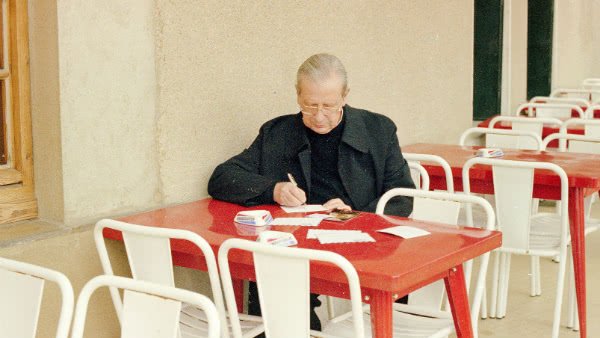Because they were afraid to suffer, the apostles abandoned Jesus, and Peter denied him three times. Only a short while earlier he had declared himself ready to give his life for our Lord, but he hadn’t taken into account his own weakness. After his betrayal, however, Peter repents; his love brings tears and forgiveness. Despite his momentary infidelity, he becomes the rock on which Christ will build his Church. God’s grace and his own contrition make of him a firm support, a man who is faithful. . . . .
In that bitter hour, what would St. Peter have done? How would he have found repentance? The Gospel doesn’t tell us, but I recall what our Father always said: to Jesus we always return through Mary. She is the surest path to a cleansing contrition that presses us to Christ’s heart, more closely than before we fell. “My mother, Lady,” wrote St. Josemaria in his Intimate Notes, “you well know what I need. Above all, sorrow born of Love. And to cry? Or without crying, but with true sorrow, so we can clean very well the soul of Jesus’ donkey. Ut iumentum! How I would like to be his throne for a triumph greater than that in Jerusalem . . . because there will be no Judas, nor Garden of Olives, nor dark night. We will set the world on fire, with the flames of the fire you came to cast over the earth!” (St. Josemaria, Intimate Notes, 16 July 1934).
My daughter, my son, this fire and light is now in your hands, in your life. Don’t let a bourgeois spirit darken it. (Alvaro del Portillo, Letter, 19 March 1992, nos 44-45)
